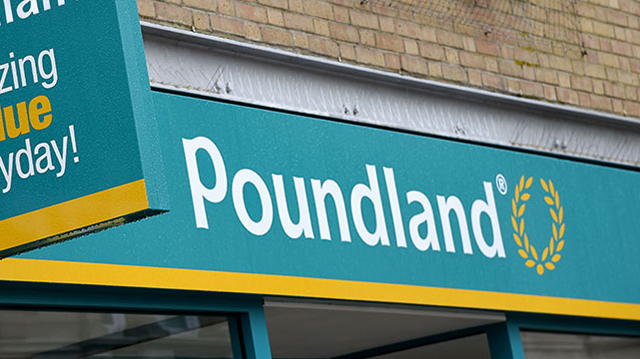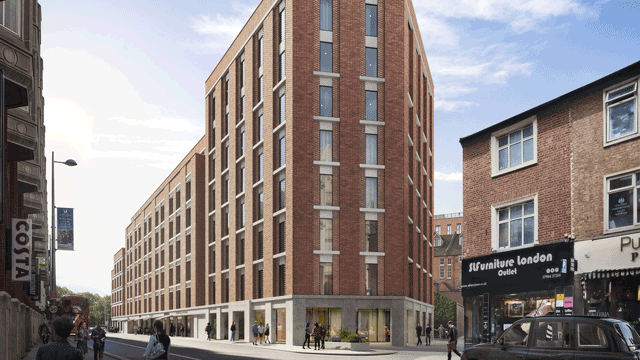In Germany’s decentralised economy, Munich is recognised as the leading high-tech location. By Lydia Westrup.
The size and importance of the German economy mean that despite high social charges, the country is a strong magnet for US electronics companies expanding in Europe.
A third of the office space let in Munich last year was taken up by companies in the high-tech sector, according to Bernhard Kumpf, European partner at Jones Lang Wootton. “Many of the smaller units of up to 500 m2 were taken by newly-founded companies or international companies setting up a presence in the German market.”
Among Munich’s high-tech community are international household names such as Compaq, Digital, Microsoft, Silicon Graphics and Sun Microsystems. In 1996, the Bavaria region, of which Munich is the capital, accounted for 70% of the direct investment into Germany. This is despite the fact that most overseas high-tech occupiers do not benefit from government incentives, which are directed at small, newly-created companies.
Munich is not only favoured by the international computer industry, however. Siemens Nixdorf has its headquarters in Munich, while smaller German outfits like PC Plus and MegaLine Software are also based in the area.
The strength of demand from the high-tech sector was an important factor in making Munich and the surrounding suburbs the best performing office market in Germany last year. Take-up was up 14% to 330,000 m2, including space built for owner-occupiers. The vacancy rate has fallen to a dangerously low 3.5%.
Personal preference as much as strategic choice appears to lie behind many of the original decisions to locate in Munich, and in just a few years the major names in the hardware and software industries have established offices in Munich drawing with them distributors and other related services.
One of the most important factors for companies choosing Munich for their German headquarters is the availability of a qualified workforce. The university and polytechnic as well as a number of research institutes provide a pool of talent for the high-tech industry. In addition, Munich has a reputation for being an attractive place to live and offers many recreational and leisure facilities.
International companies generally use Munich as a base for their German sales and marketing activities, generating demand primarily for office space. “Germany is not a country where you put your production or distribution facilities,” says Kurt Dobisch, managing director of Compaq Computer GmbH.
The company came to Munich in 1984 and has established its regional headquarters for Europe, the Middle East and Africa here. Compaq employs almost 600 people in Munich, who are responsible for the marketing, management and administration functions in the region. European manufacturing is based in Glasgow, while distribution is run from the Netherlands. “In Munich we needed 30,000 m2 to 40,000 m2 of office space and could not find suitable buildings which adequately met our requirements in the city. Hence we decided to develop our own building on the outskirts of Munich in Dornach,” explains Dobisch.
Compaq moved to Dornach in August 1995. The building was sold to DespaFonds and Compaq signed a long lease. Another office block is currently under construction on an adjacent site. Compaq is considering taking some of the space; details on the total area have not been decided yet.
While high-tech companies can be found in different parts of Munich, Hallbergmoos and Ismaning, both near the new airport, are favourite locations for the high-tech community. Office rents range from DM 20 to DM 25 per m2 per month. This compares to DM 50 for first class office locations in prime central business district addresses. However, the average rents paid for city offices are DM 35.70.
Compared to other German centres there are few traditional business parks which offer warehouse and service space. Bernhard Kumpf explains the reason: “In Munich and surrounding village communities land prices are very high. The rents for traditional business parks with service and warehouse space do not stack up, hence investors have tended to build office parks.”
A case in point is Hallbergmoos, the location of the new airport. Originally earmarked for a range of business uses, the high land prices forced developers and investors to build offices. On completion, the new space was met by slackening demand and falling rents. As the area was not a traditional office location, it lacked infrastructure in terms of access to shops or public transport services, and quickly earned the distinction of having the highest vacancy rate in Munich and surrounding areas.
The last 12 months has seen something of a turnaround, with 32 lease agreements signed during 1996, absorbing 18,000 m2. Headline rents range between DM 18 and DM 26 per m2 per month, but tenants are able to negotiate generous packages in terms of rent-free periods and fitting out by the owner, so that the actual rents paid often fall below DM 20.
Improving tenand demand boosted the nearby 40,000 m2 Isar Buro Park, which was completed in 1995 and is now about 80% let. The scheme, developed and owned by Grundbesitz-invest, the open-ended fund managed by DGI, has attracted one of the hottest companies in the Internet sector, Netscape Communications.
Simone Droll, a representative of Netscape, explains why the company opted for the Isar Buro Park. “First, the park offers high quality space at an unbeatable price. Secondly, we wanted to be close to the airport. Germany is a decentralised market hence the vicinity of the airport is important to us. Thirdly, we are a quickly expanding company and here we have the opportunity to take additional space. We started out with a small office of 500 m2 in June 1996, but we exercised our option for taking an additional floor.”
The ability of new tenants to expand is key to attracting high-tech companies. Often an overseas company arriving in Munich will be looking for around 100 m2 but will expand quickly. After six to 12 months they need 500 m2 or more. For them, it is important to be able to take additional space in the same locations, an advantage that Hallbergmoos is still able to offer.
In Grasbrunn, east of Munich, DGI owns four units with a lettable space of 13,600 m2 in the 15-unit Technopark. Silicon Graphics, provider of servers and workstations has taken 7,000 m2.
Klaus Lemke, director in charge of finance and administration at Silicon Graphics comments on the location. “The Technopark benefits from an excellent infrastructure in terms of motorway access and availability of public transport. Also, there are shopping facilities for our staff nearby. The scheme is well designed. After our takeover of Cray Research we last November signed another lease for 1,300 m2.”
A drawback for the tenants waiting to expand is the fact that the Technopark is fully let and there are no opportunities to take up additional space. Negotiations concerning site acquisition and planning consent for a second phase of the Technopark are currently under way.
As high-tech companies grow, they not only require more space, but often need to rationalise disparate offices. Data processing software company Oracle is a case in point. The company is growing quickly in Europe. “In Germany we are looking for more that 250 new staff,” says Michael Gedon, marketing director at Oracle Deutschland.
The company decided 10 years ago to put its German headquarters in Munich. “We chose Munich for two reasons: here we find highly qualified staff and many of our business partners and customers are located in southern Germany,” explains Gedon. At present, Oracle is scattered in five different locations across Munich. “We intend to reduce this to two locations. For this purpose we are currently looking for a suitable site to accommodate 600 to 650 employees.”
Examples of business parks offering both warehouse and service space as well as offices are found in Feldkirchen and Haimstatten, near Munich’s new exhibition centre. Gewerbe im Park, one of Germany’s best-known developers of business parks, has built two adjacent schemes.
While the Haimstattenwas completed in 1987 and is fully let, Feldkirchen is under construction. The business park was pre-sold to DGI. The development features 22,750 m2 of lettable area, of which 13,000 m2 is offices, 8,500 m2 warehousing and 1,250 m2 is additional services and storage space. The investment value of the project is DM 56m. Completion is scheduled for May this year.
PCM Computer, part of the Debis group, the service subsidiary of Daimler Benz, has signed a lease agreement for 8,750 m2. GiP is confident that by the end of the year the business park will be fully let. The rent level for business park space ranges from DM 18 to DM 24 per m2 per month for offices, DM 12 to DM 16 for warehousing and DM 15 to DM 19 for service space.
Over the past year, rents have stopped falling and are beginning to stabilise. Even the huge oversupply in Hallbergmoos, which at its peak came to 100,000 m2, is slowly being absorbed.
Bernhard Kumpf reckons that the buildings required by the computer industry have to offer maximum flexibility in order to be able to accommodate the different styles and tastes of international and German companies. Translated into specifications, this means well-lit space no deeper than 12 m. Such rooms are able to meet the needs of companies with a preference for open-plan offices as well as those which need more group or single offices.
The outlook for Munich as a location for high-tech companies is positive. This is also good news for the property industry. Bernhard Kumpf says: “We expect continuing demand from the high-tech industry this year, confirming Munich’s leading role as a high-tech location in Germany.”










